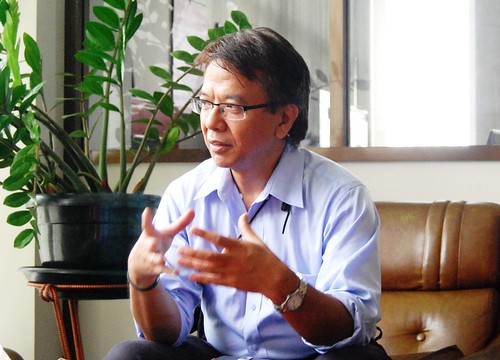
Endy M. Bayuni |
Konstelasi kebebasan media pasca Orde Baru menunjukkan berbagai tren yang menarik untuk dicermati. Di antaranya adalah keterbukaan media untuk meliput konflik-konflik SARA dan menguatnya kecenderungan konservatif masyarakat Indonesia. Di sela-sela kunjungannya di CRCS UGM untuk mengisi Workshop “Penulisan Jurnalistik dan Akademik di Media Online” serta Wednesday Forum “Religion and Media”, Endy M. Bayuni (Editor Senior harian berbahasa Inggris terkemuka di Indonesia, The Jakarta Post) menyempatkan diri untuk berbincang-bincang dengan reporter kami, Khoirul Anam. Berikut cuplikan interview yang dilakukan pada Rabu, 22 Februari 2012 ini:

 The relationship between religion and science has captured world wide attention from people in any way. Some believe that religion and science need to be put in different boxes because they work in different ways, but others believe that both of them need to be harmonized because they share the same goal. Bellow is the interview with Prof. Nidhal Guessoum, one of the speakers in the “The First International Conference on Knowledge and Values” conducted by CRCS, ICRS, and the 26th UGM anniversary committee. He is a professor of Physics at the American University of Sharjah (United Arab Emirates) who had Ph. D. in Astrophysics from the University of California, San Diego, USA. He is also active in the area of popularization of science and the interface between science and religion.
The relationship between religion and science has captured world wide attention from people in any way. Some believe that religion and science need to be put in different boxes because they work in different ways, but others believe that both of them need to be harmonized because they share the same goal. Bellow is the interview with Prof. Nidhal Guessoum, one of the speakers in the “The First International Conference on Knowledge and Values” conducted by CRCS, ICRS, and the 26th UGM anniversary committee. He is a professor of Physics at the American University of Sharjah (United Arab Emirates) who had Ph. D. in Astrophysics from the University of California, San Diego, USA. He is also active in the area of popularization of science and the interface between science and religion.